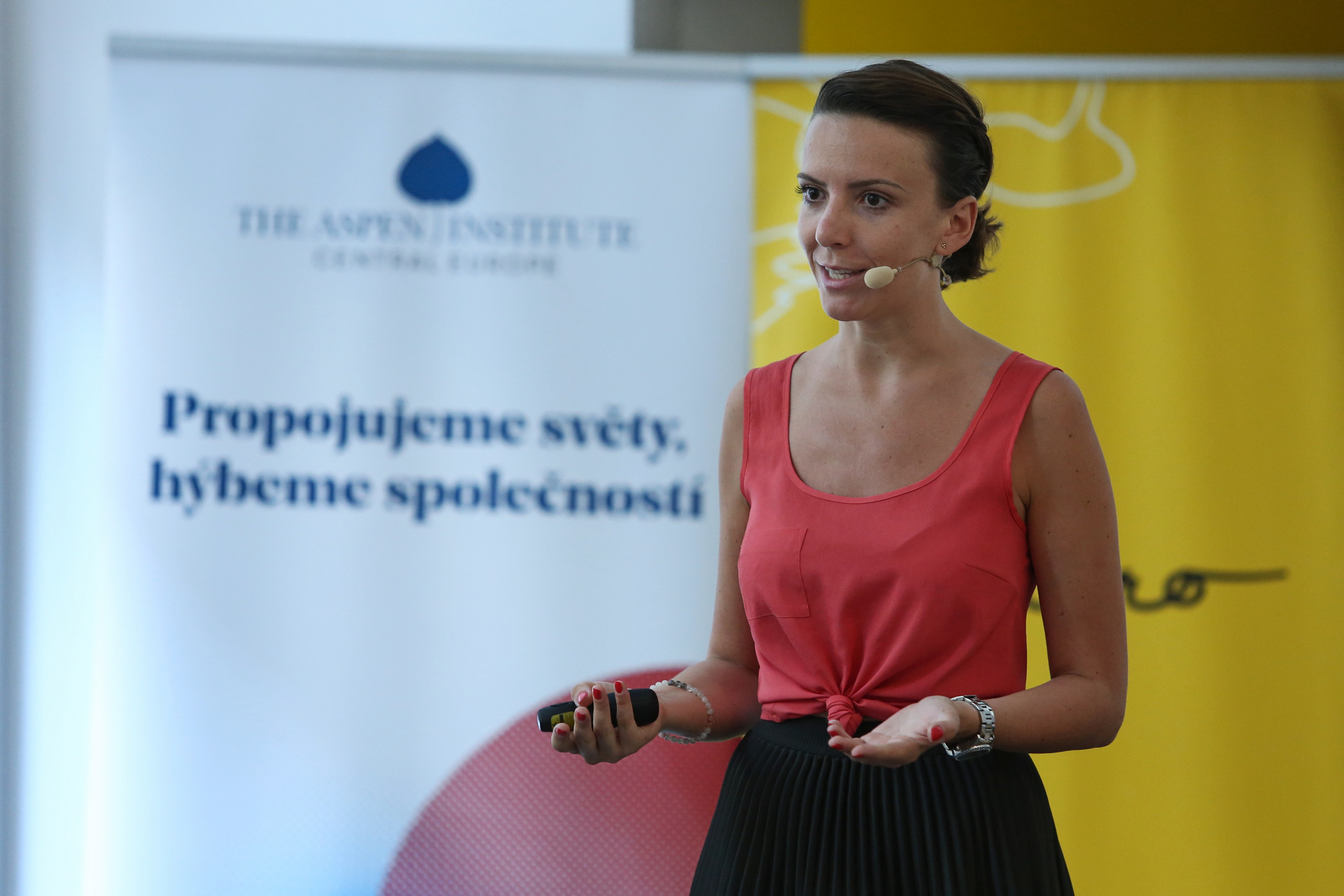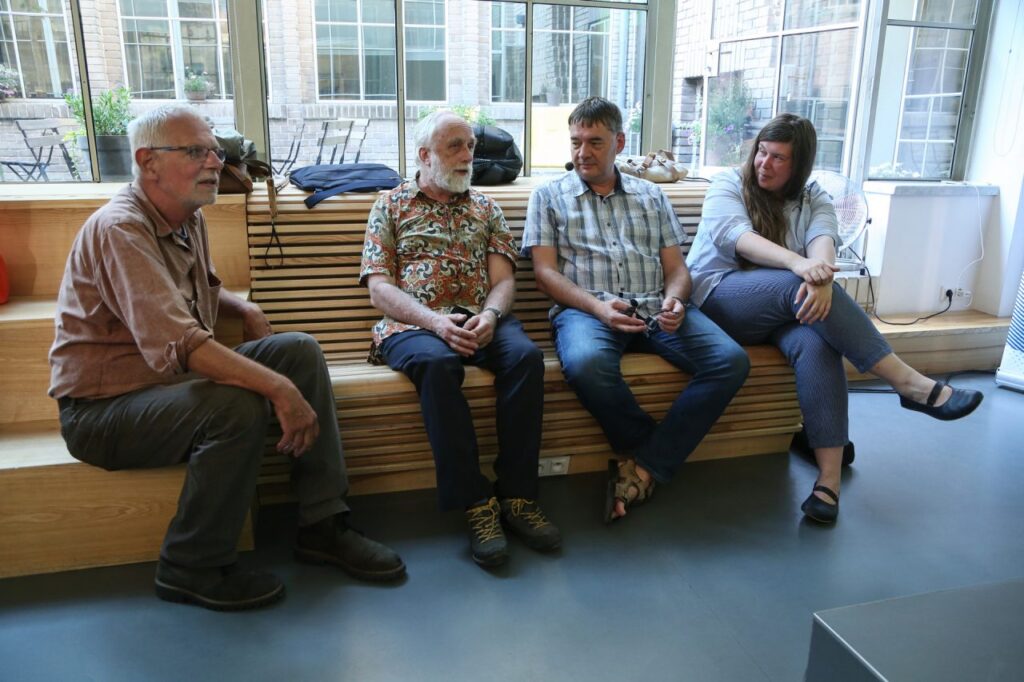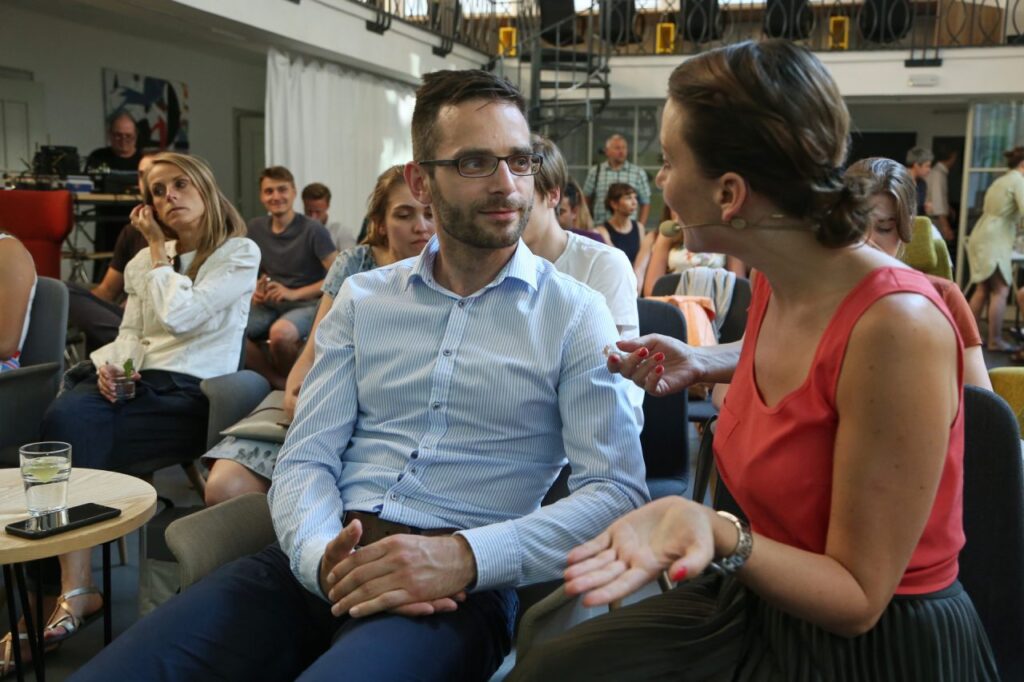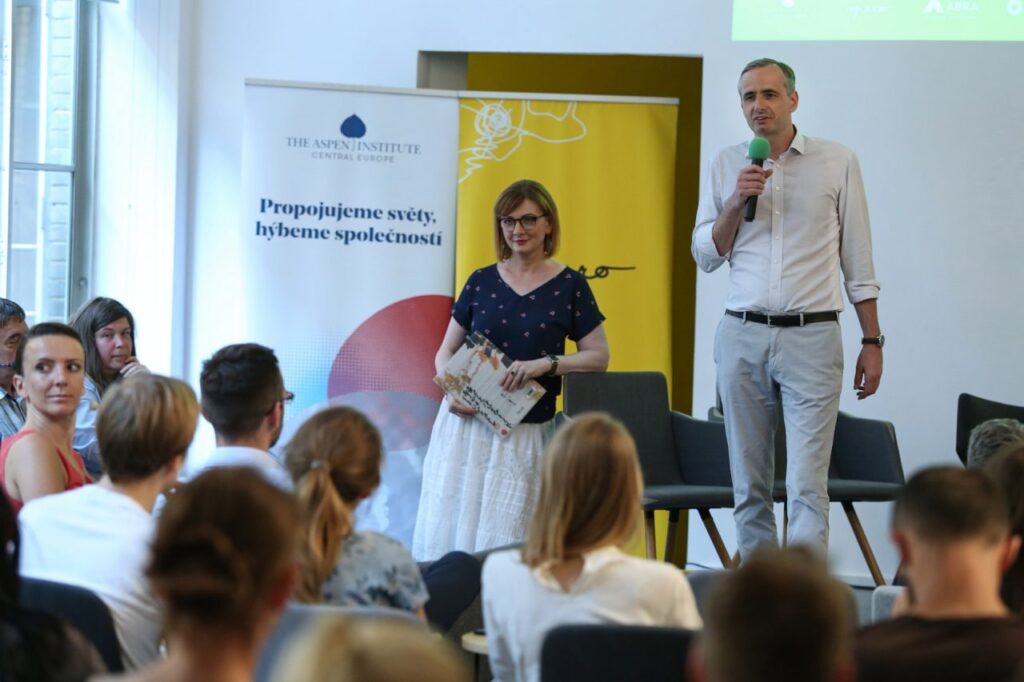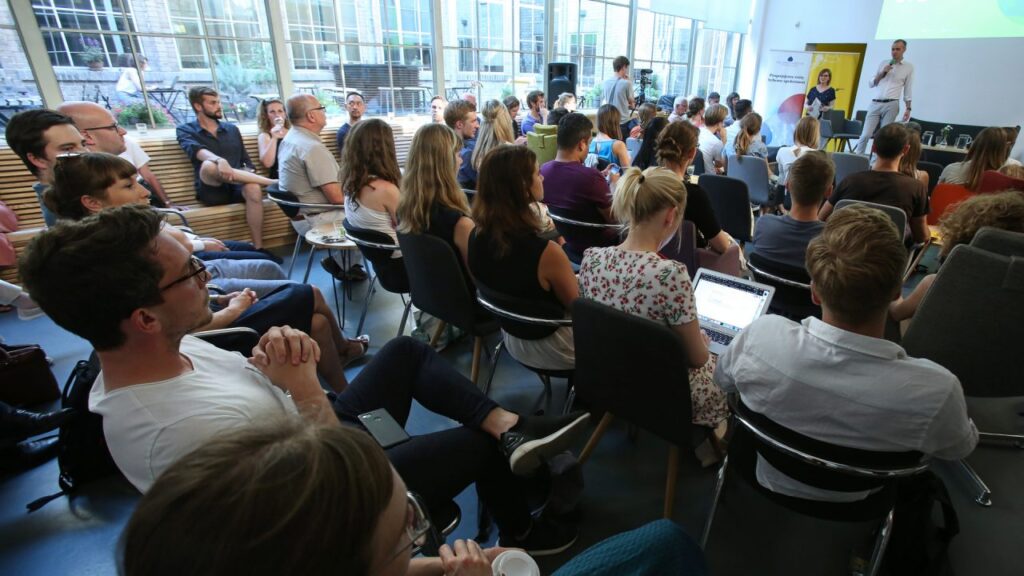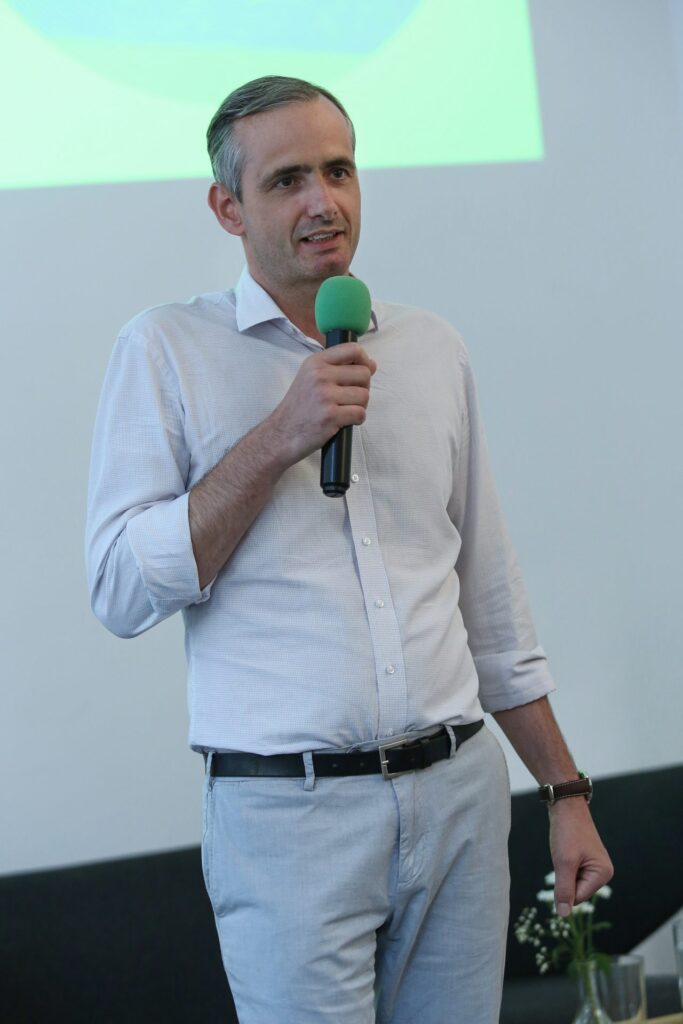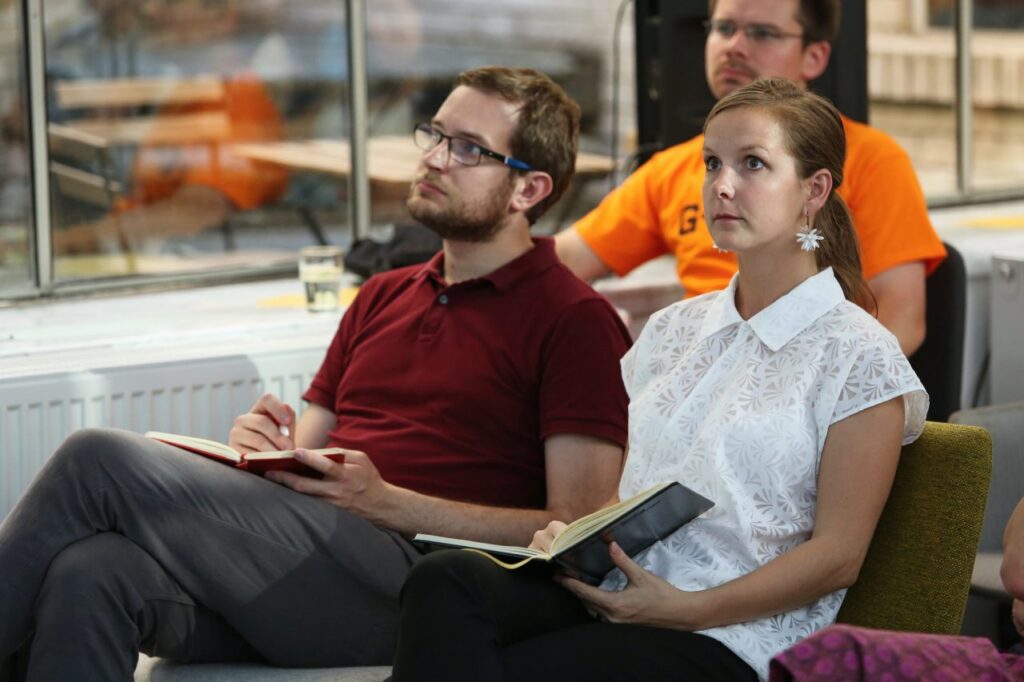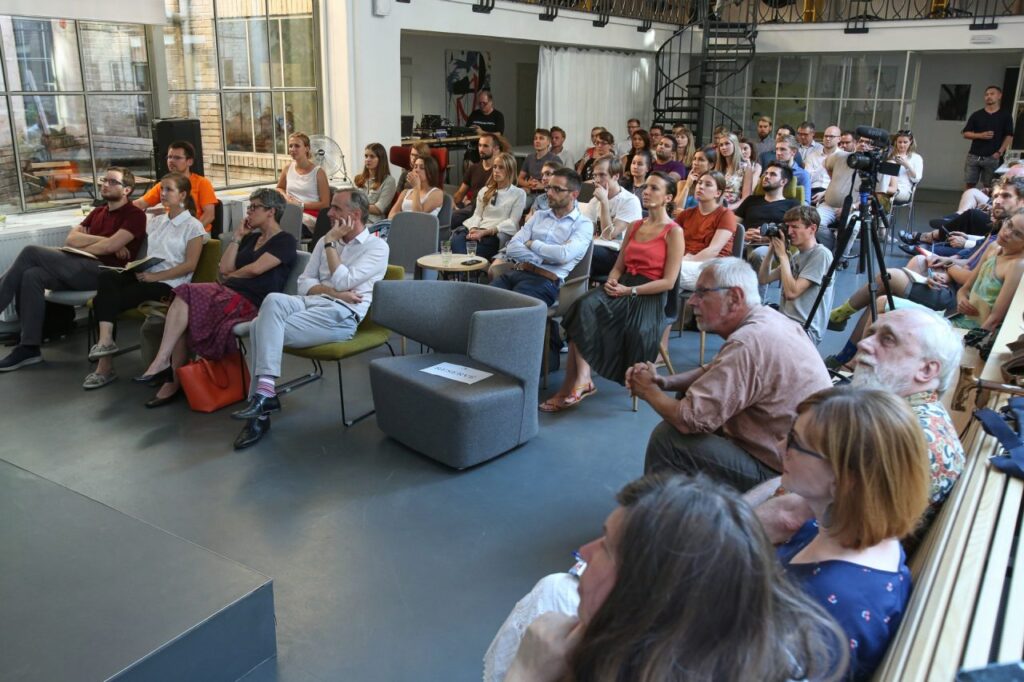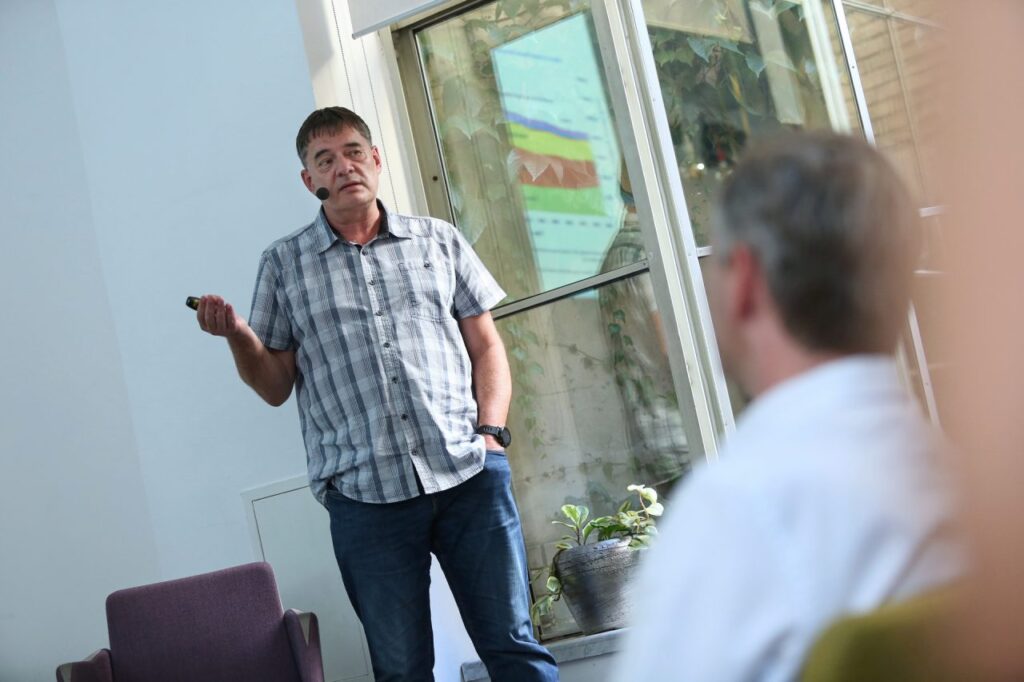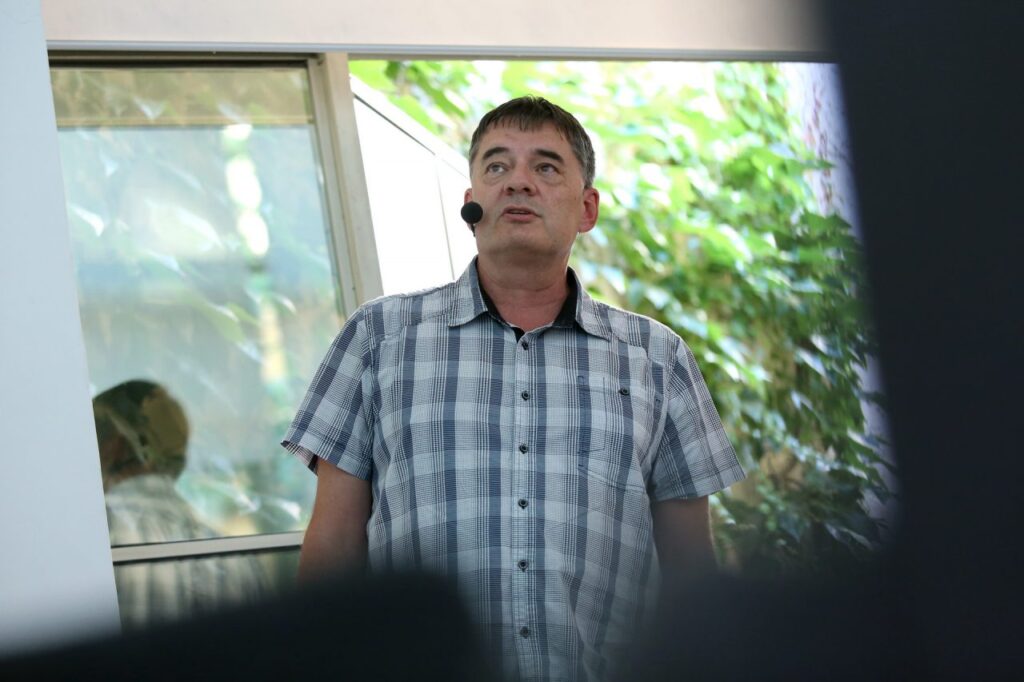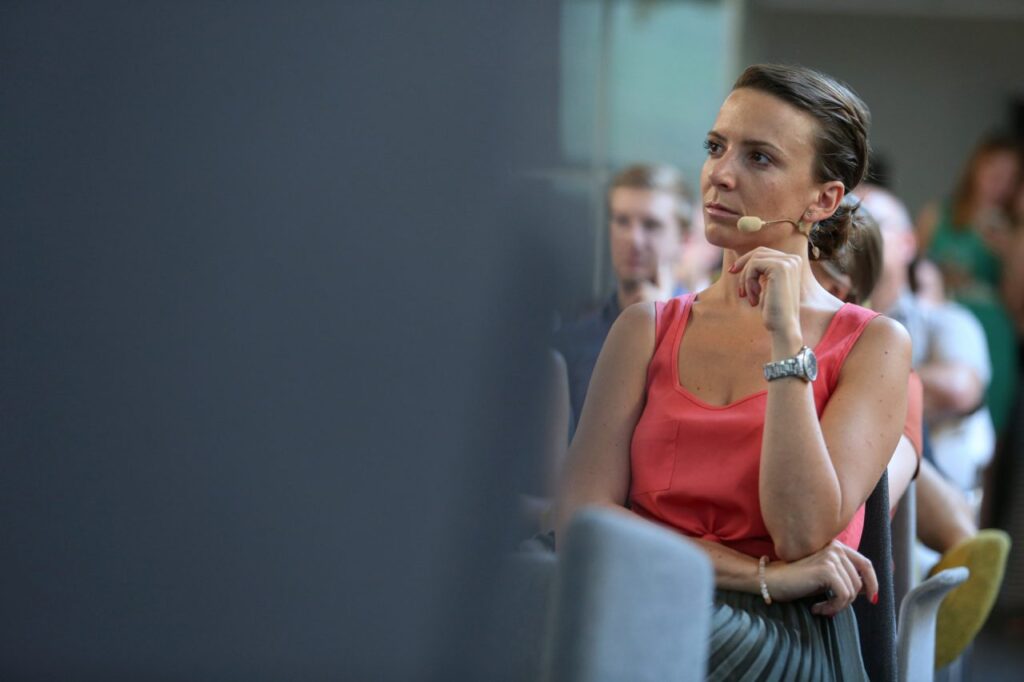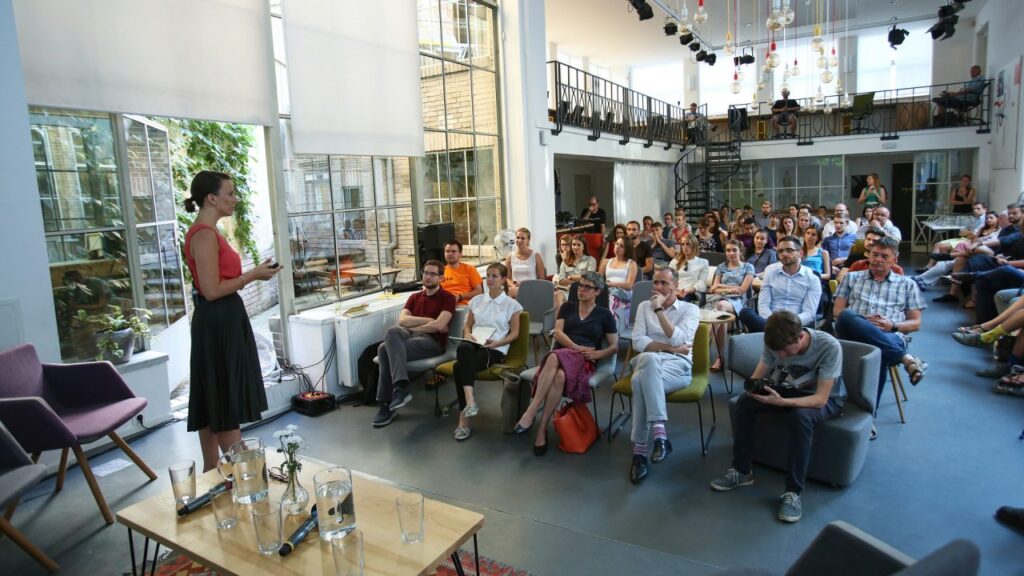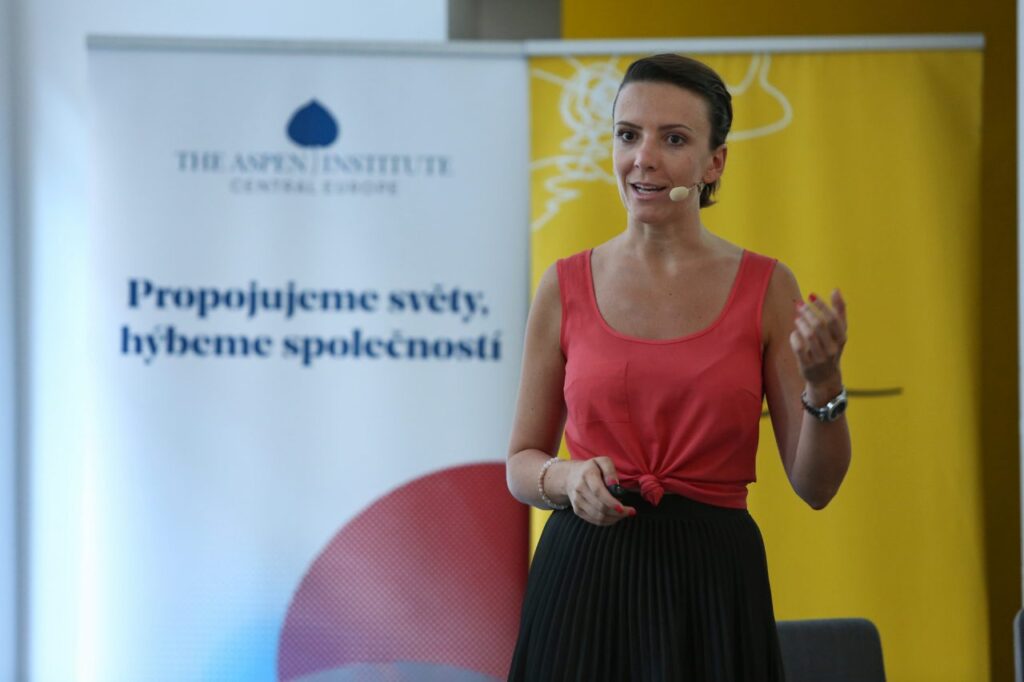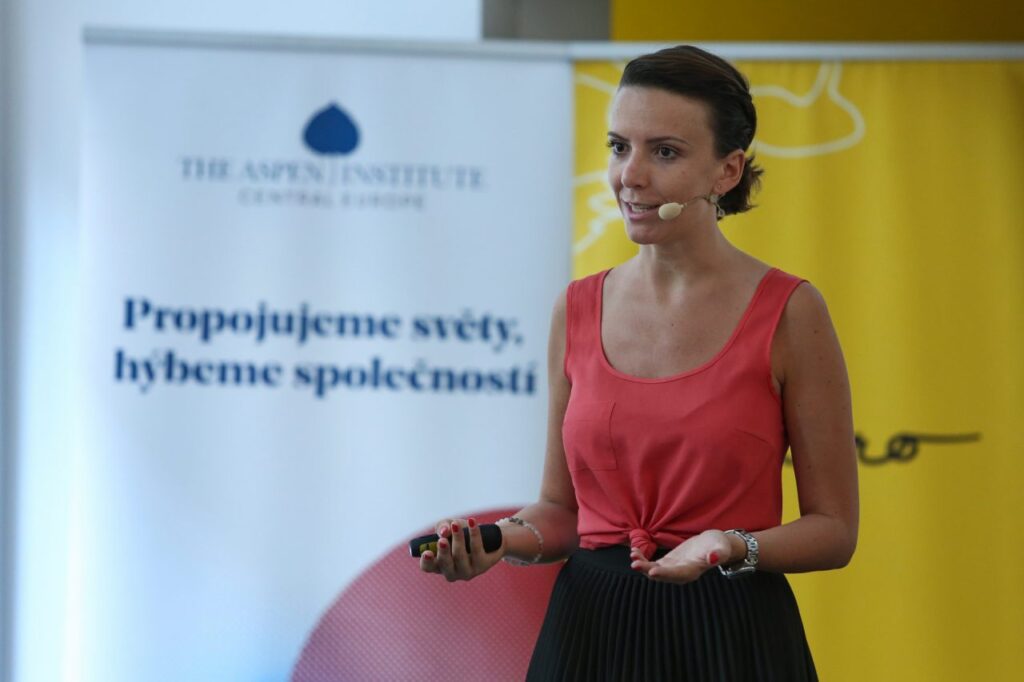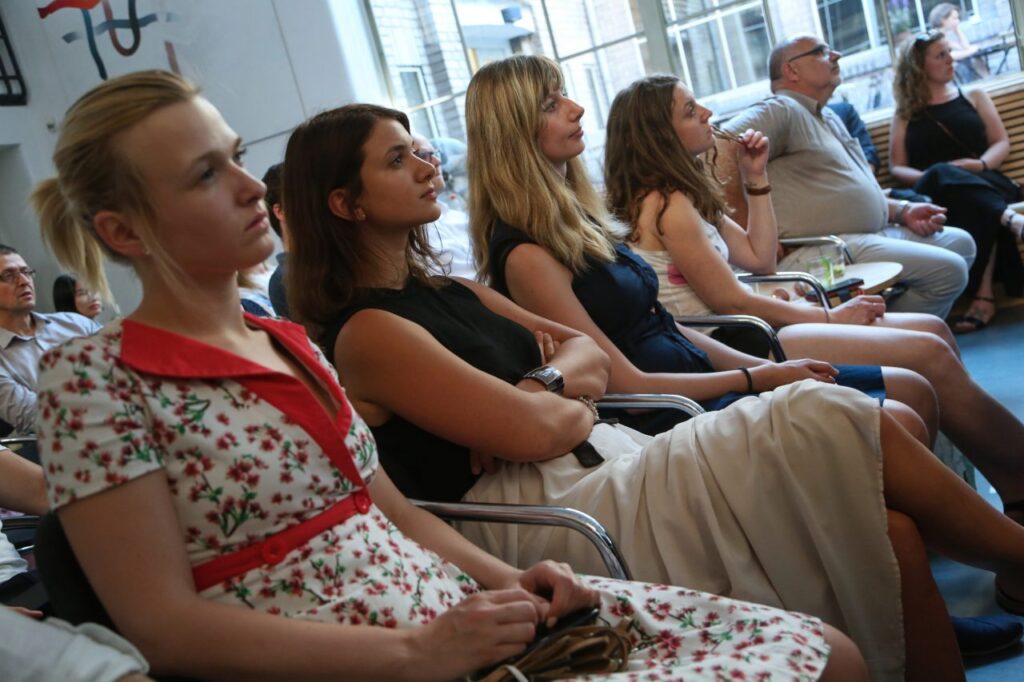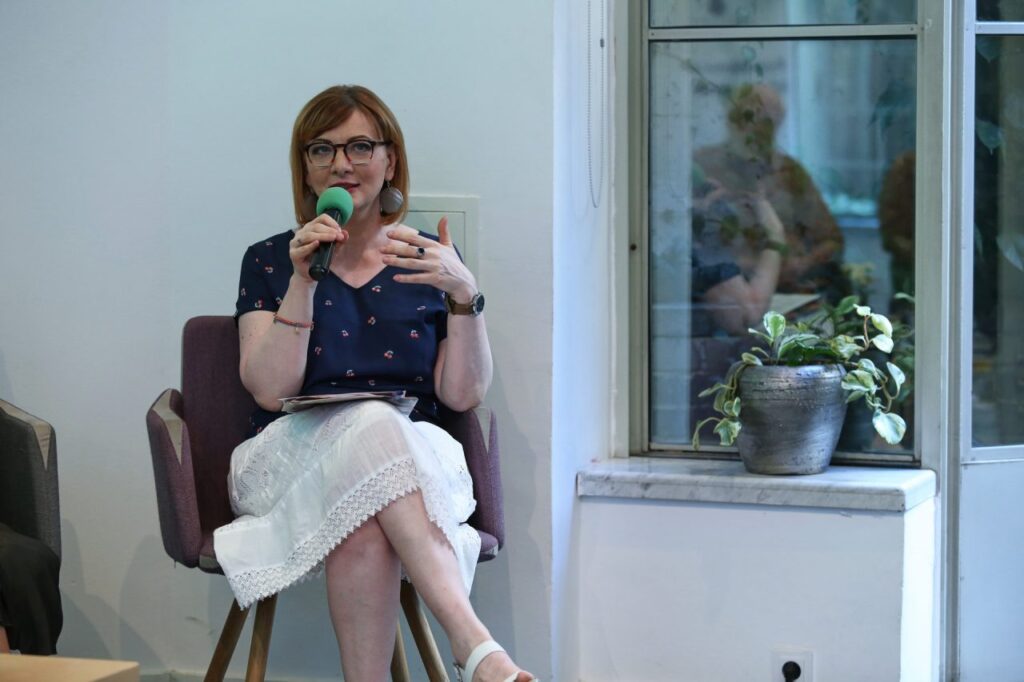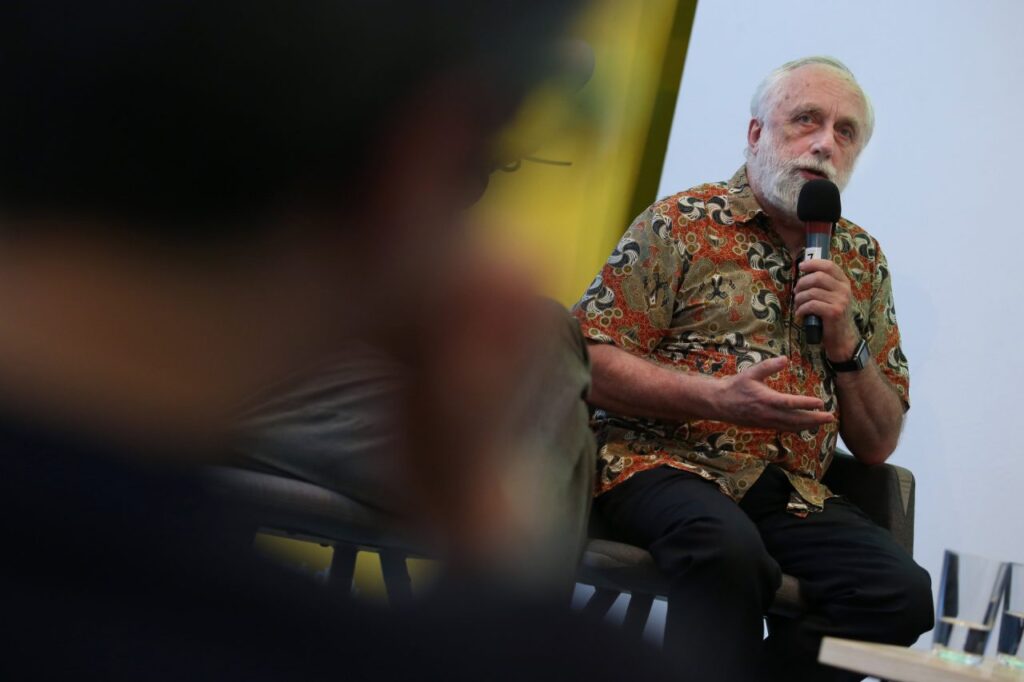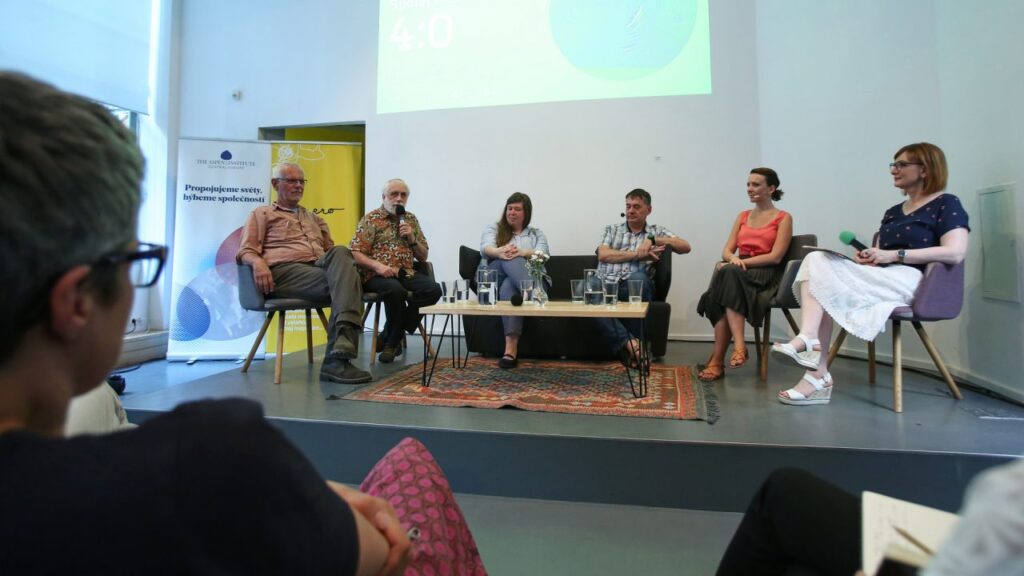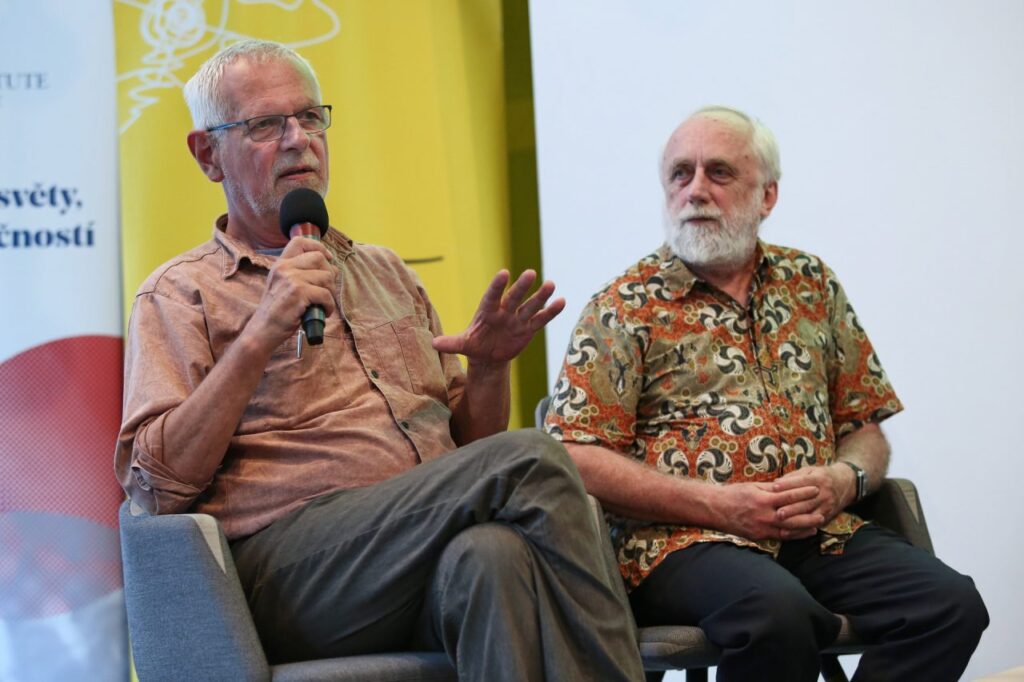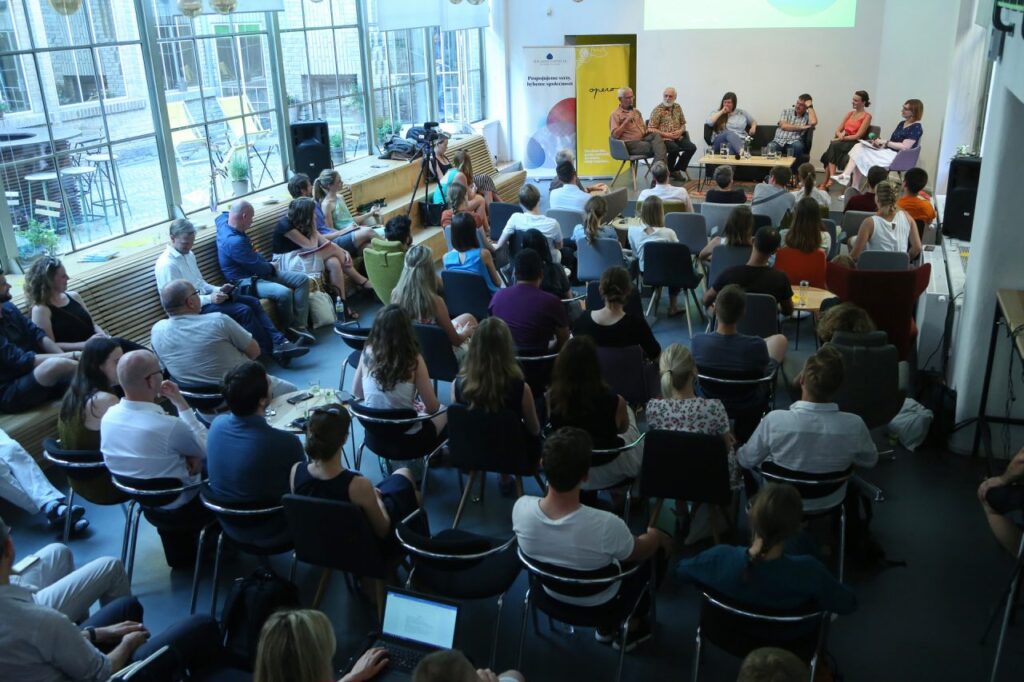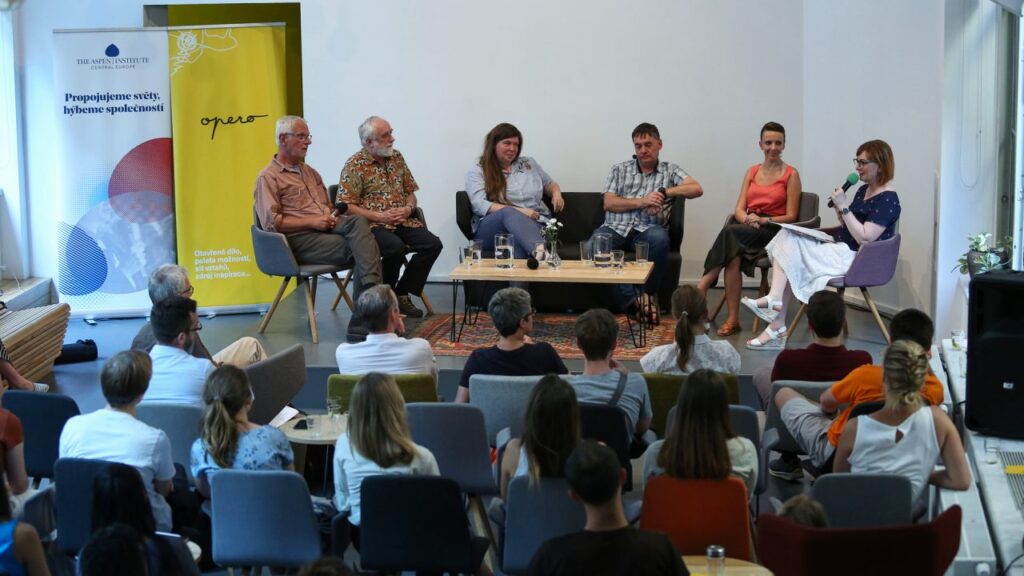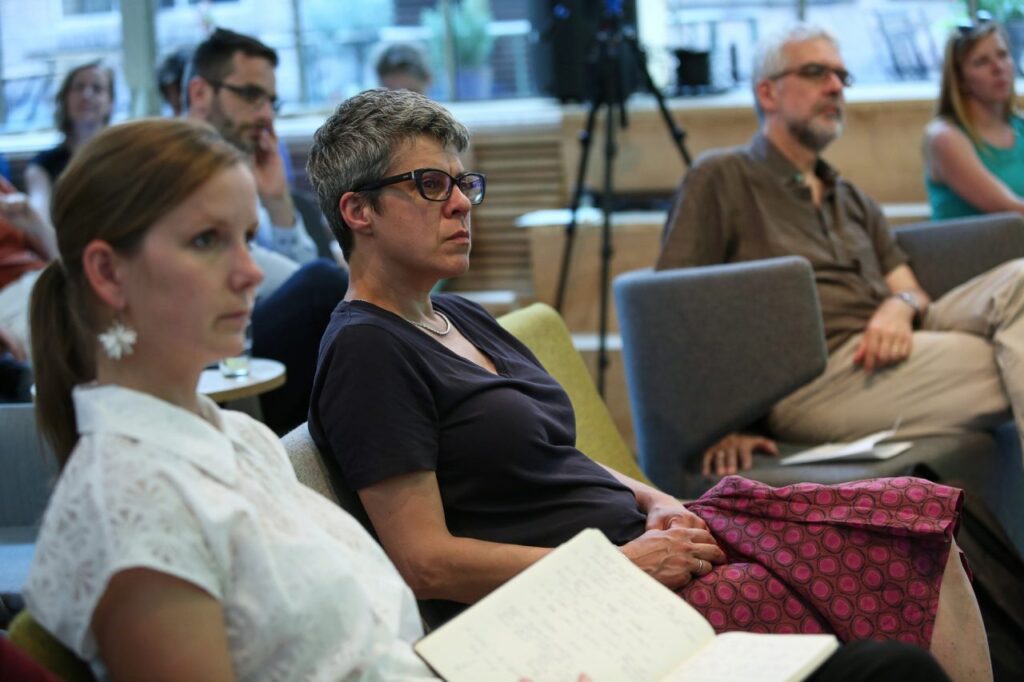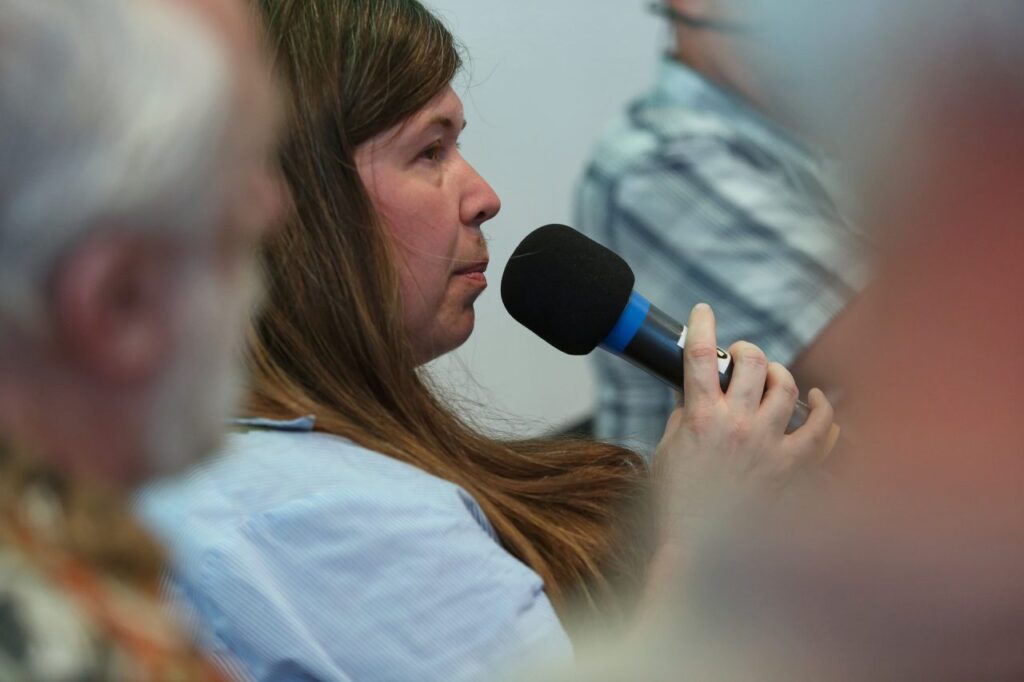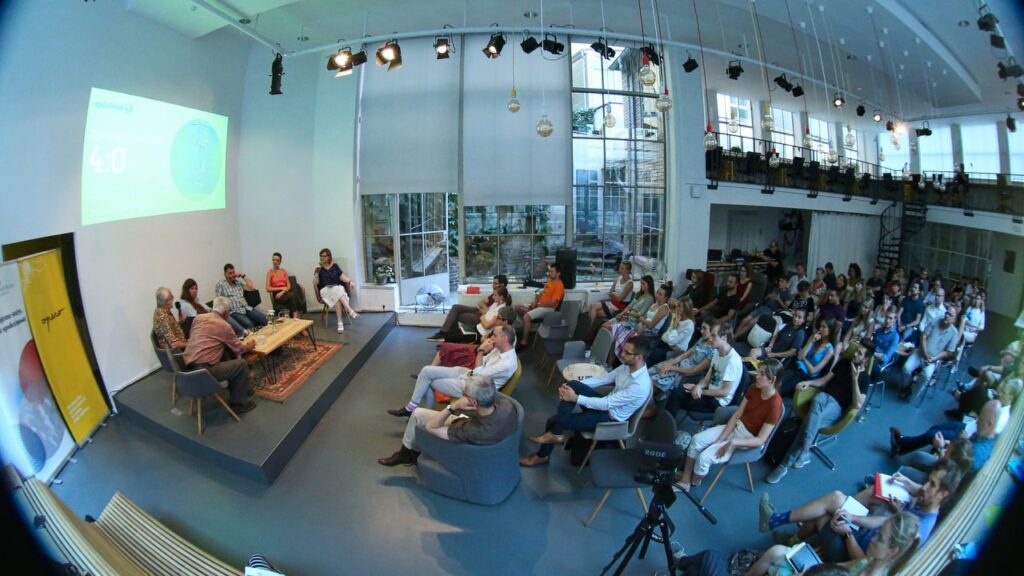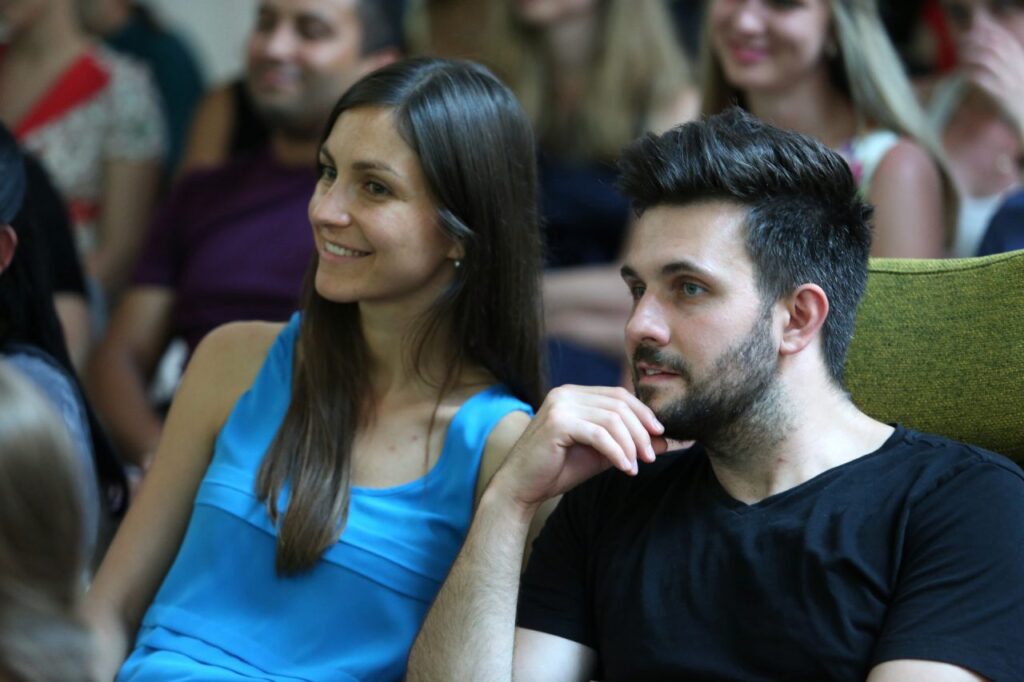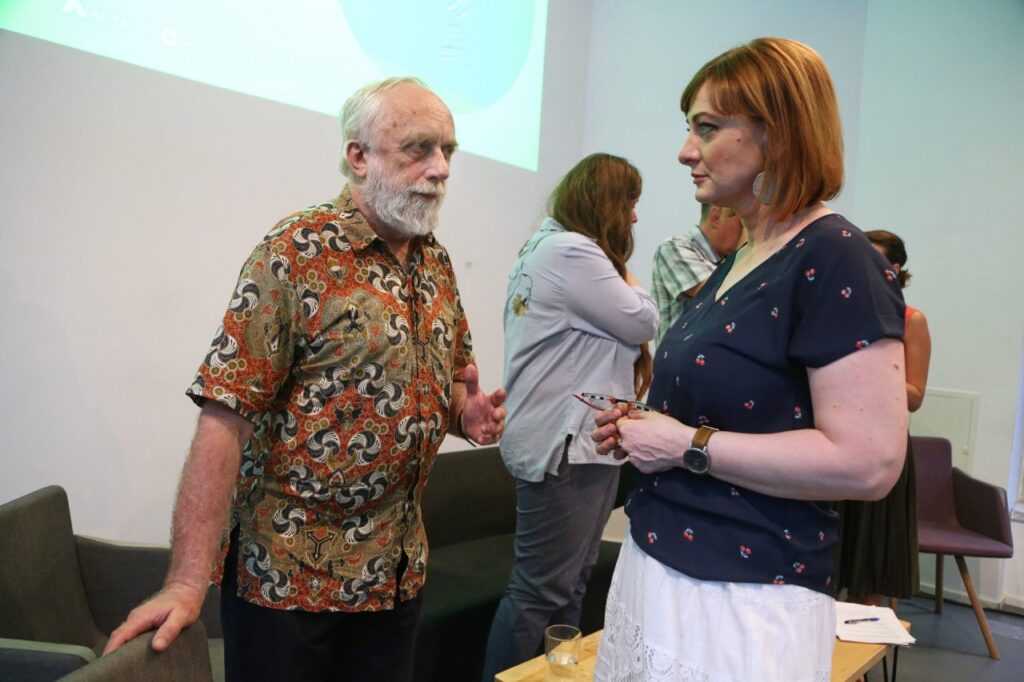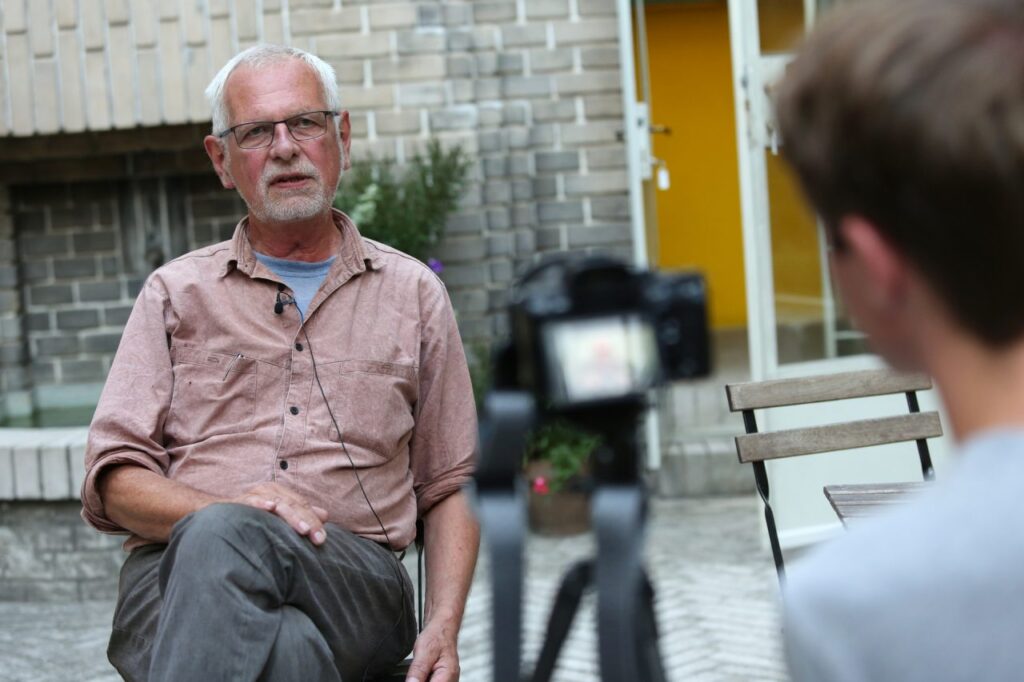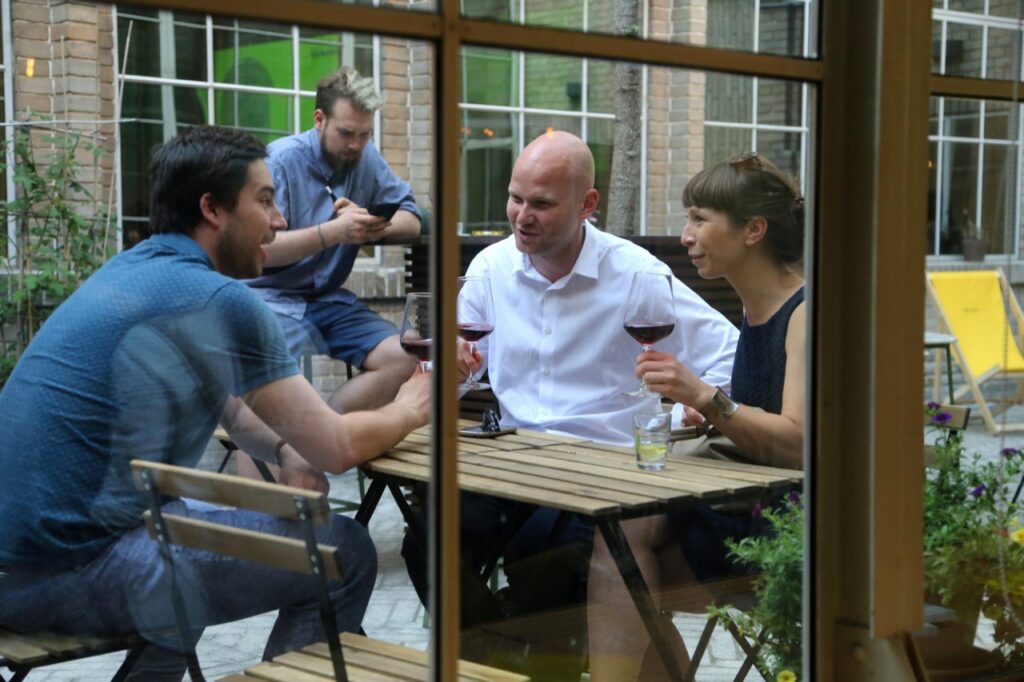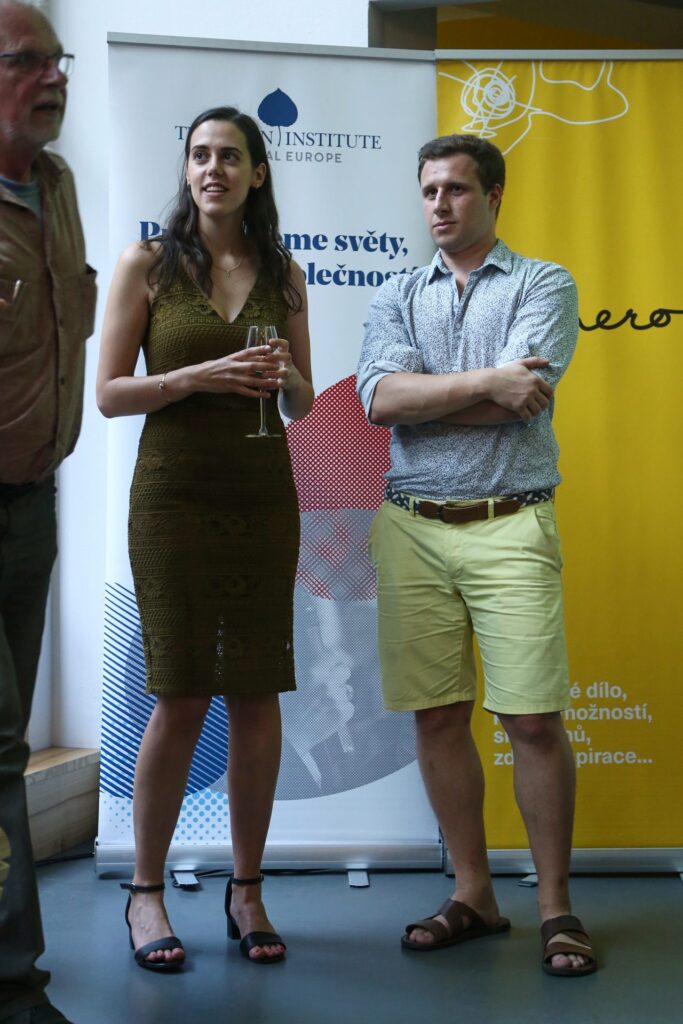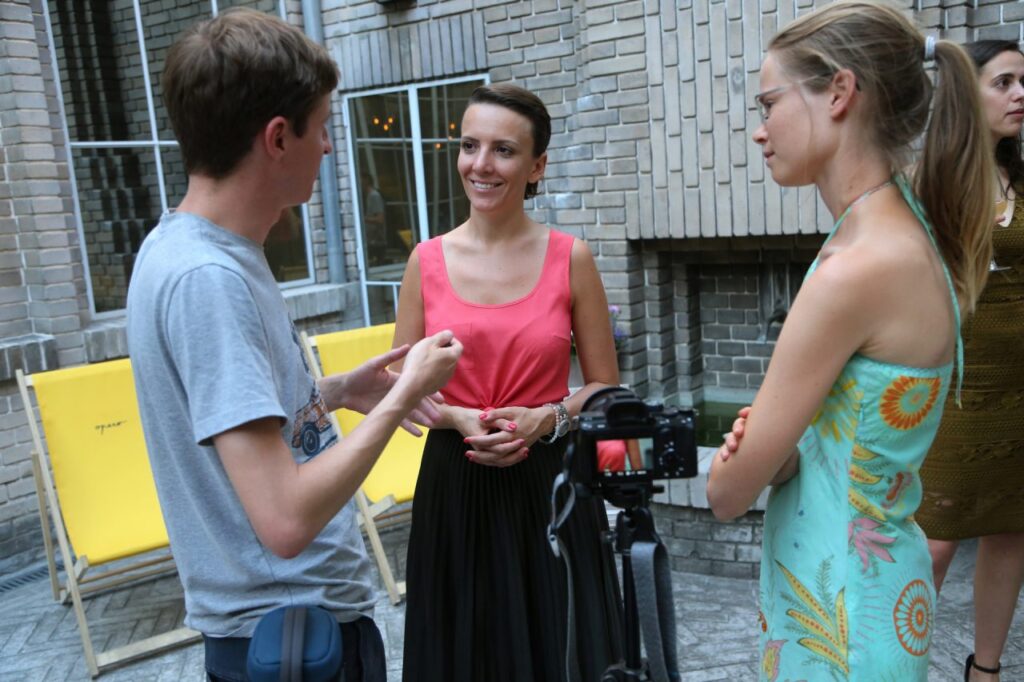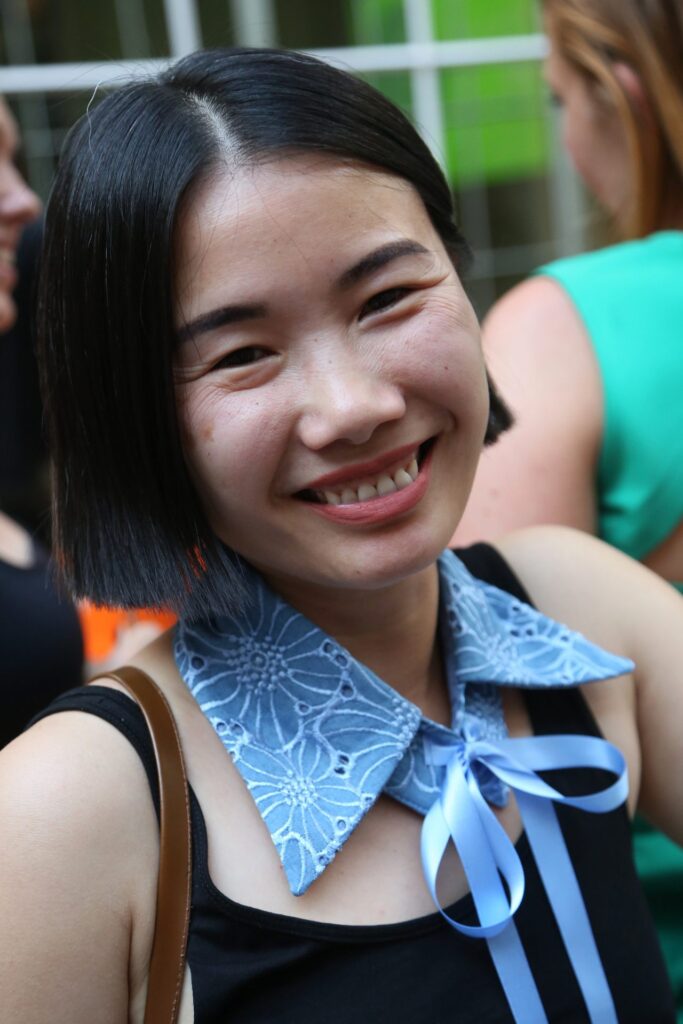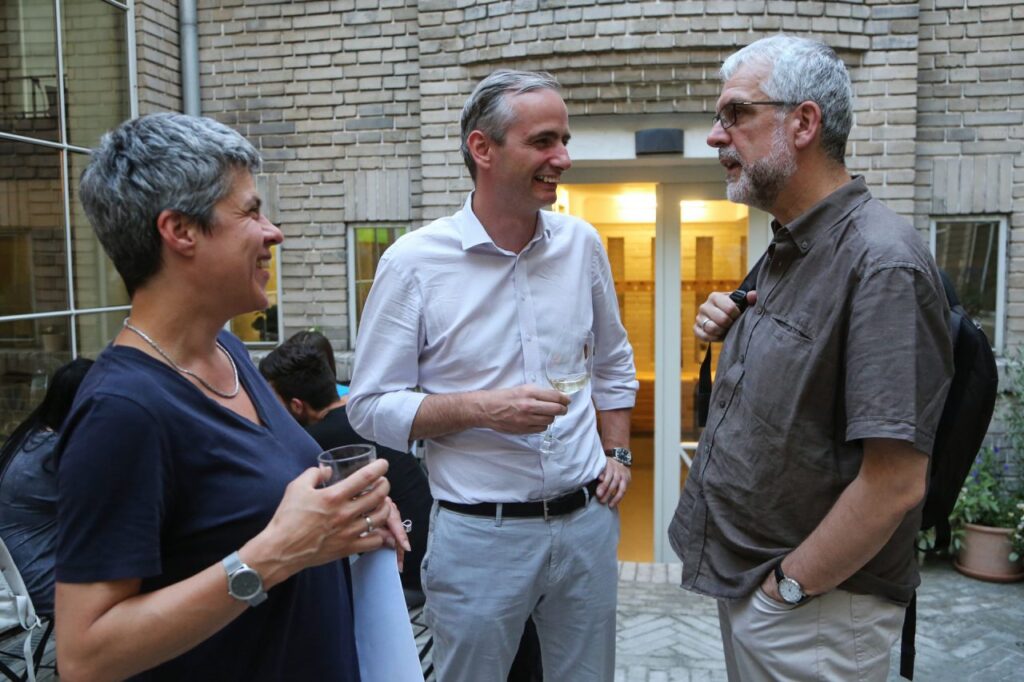Public debate from the series Society 4.0, this time with the subtitle Society vs. Nature 4.0, was organized in collaboration with ABRA Software and the Neuron Fund, as well as the coworking space Opero, where the event took place on Tuesday, June 18.
The attendees were welcomed by the Executive Director of Opero, Pavel Přikryl. After introducing the participants and guests in the packed hall of Opero, the evening’s moderation on the topic of Society vs. Nature was taken on by Veronika Sedláčková, a moderator from Czech Radio.
The first presentation was given by Radim Tolasz, a climatologist and meteorologist, and the head of the Climate Change Department at the Czech Hydrometeorological Institute. He introduced the basic concepts related to climate, the greenhouse effect, and anthropogenic impacts on the environment and atmospheric changes. He also mentioned how the Czech society historically approached these issues and emphasized the need to combat the underestimation of the scope of climate change in the present.
“Climate change is a problem that has been underestimated in the Czech Republic for a long time.”
Radim Tolasz also referred to predictions published by the Intergovernmental Panel on Climate Change (IPCC) in the early 1990s, which were considered alarmist at that time. He stressed that the forecasts about the increase in atmospheric temperature and sea levels are remarkably accurate compared to the current state. Therefore, it is essential to take these threats very seriously and try to maintain or ideally reverse the current situation.
Next, Soňa Jonášová, founder and director of the Institute of Circular Economy (INCIEN) and an Aspen Young Leaders Program alumna, spoke about the interconnectedness of the causes and consequences of climate change and environmental degradation on a global scale. As examples, she mentioned cheap textiles and “fast fashion,” whose production affects the environment in developing countries, particularly in southern Asia, and generates massive amounts of waste that pollute the soil and oceans. Waste management is a significant issue that INCIEN consistently addresses – particularly in the Czech environment, they strive to reduce the number of legal dumps that contaminate the soil and groundwater. However, waste materials could be much better utilized in a system of circular economy – where every waste becomes another resource.
“The circular economy is an incredibly fascinating tool that allows us to use all available resources to the fullest extent.”
Alena Wranová, a landscape engineer and member of the association CooLAND talked about the importance of community-based agriculture and supporting farmers who approach the landscape responsibly and respect its natural processes. As a means of their support, she mentioned the Community Supported Agriculture (CSA) system, where end consumers directly purchase produce from specific local farmers in the form of weekly or monthly boxes. She also highlighted the need to focus on maintaining strong and healthy soil, which is key to sustainable production. Alena Wranová also pointed out that consumers should consider what is on their plate. Farmers will grow or import from abroad what there is demand for. Therefore, a focus on diverse local and seasonal diets is highly desirable.
The discussion also involved Pavel Kindlmann, a natural scientist from the Academy of Sciences of the Czech Republic (AV ČR), who contributed to a recently published report on biodiversity by the United Nations. Pavel Kindlmann emphasized the importance of realizing that nature can manage without humans, while humans are heavily dependent on nature – hence the need to approach it accordingly. He spoke about species extinction and the significant loss of biodiversity, which harms the entire ecosystem. The extinction of species occurred long ago with the advent of agriculture (natural environments were reduced in favor of fields), but even then, there were remnants and other means that allowed animals and insects to survive in agricultural landscapes. With the rise of industrial society and a population dependent on production, agriculture transformed into a highly efficient system that leaves no space empty – currently, only 0.3% of the original natural environment remains.
Oldřich Syrovátka, a natural scientist and environmentalist from the Faculty of Management at the University of Economics, focuses on landscape revitalization and methods for water retention. Like the other speakers, Oldřich Syrovátka emphasized the importance of proper management and work with soil, landscape, and water, which is becoming an increasingly limited resource.

